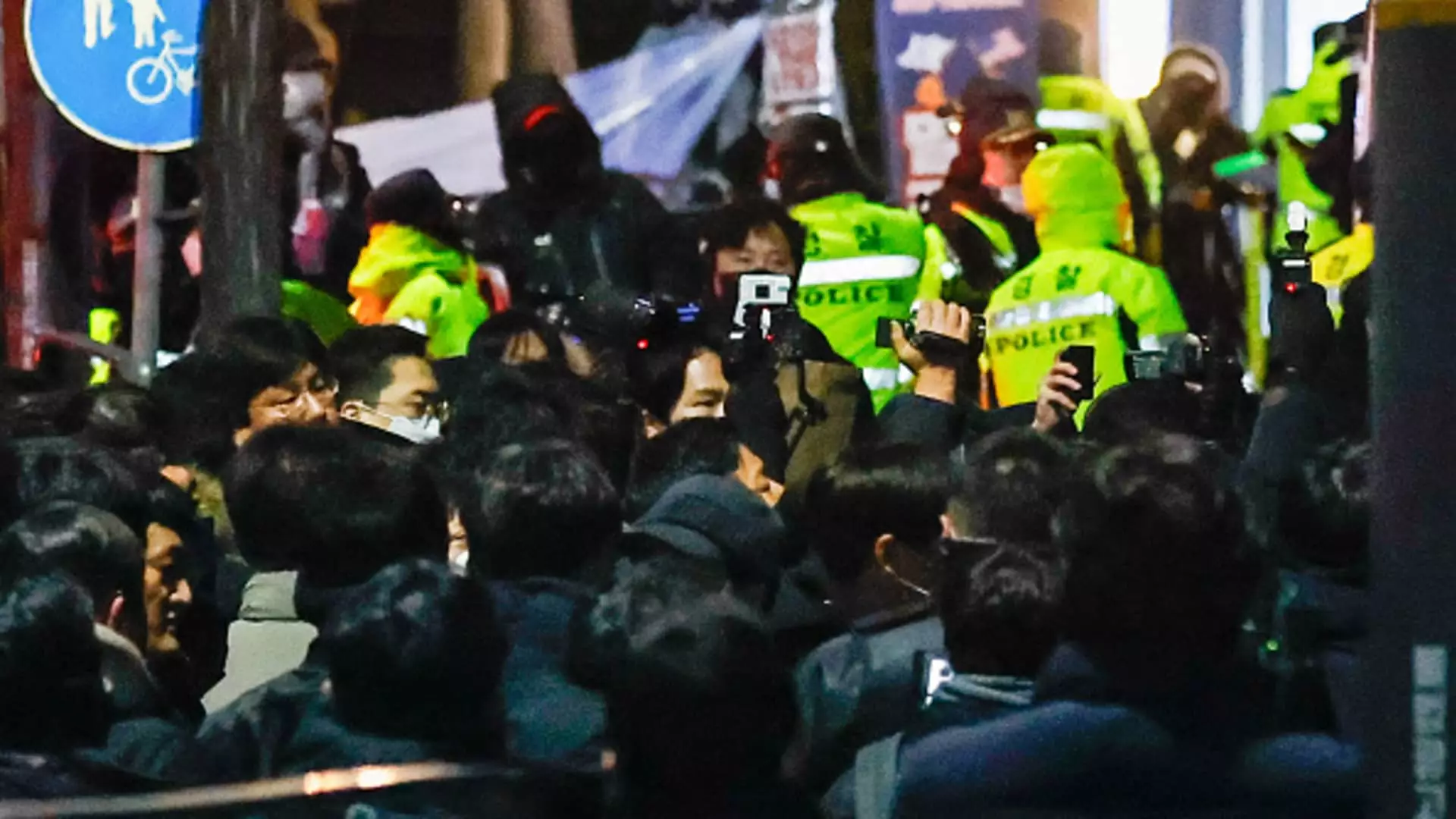In a shocking turn of events, South Korean President Yoon Suk Yeol has become the first sitting leader in the nation’s history to be arrested by the Corruption Investigation Office for High-Ranking Officials (CIO). This political upheaval marks a critical moment in South Korea’s democratic landscape and raises significant questions about governance, accountability, and the rule of law. Yoon’s presidency, marred by controversy, took a darker turn as criminal charges loomed over him, including allegations of insurrection linked to his controversial declaration of martial law.
Political Fallout and Arrest Attempts
The political storm surrounding Yoon intensified following two attempts to arrest him, casting a long shadow over his government’s credibility. The first attempt, which took place on January 3, was thwarted by the President’s own security detail, illustrating a remarkable confrontation between state security forces and the judicial authorities. This set the stage for the second and ultimately successful operation that involved the mobilization of approximately 3,000 police officers, signaling the seriousness of the situation and the lengths to which authorities would go to fulfill their mandate.
Yoon’s response to these developments was equally dramatic. In a pre-recorded address, he articulated his belief that “the law of the country has collapsed,” vehemently opposing the CIO’s investigation. His insistence on appearing before the agency was framed as an effort to avoid “unpleasant bloodshed,” reflecting a leader increasingly isolated and under siege. Such rhetoric not only underscores his precarious political standing but also highlights the potential for escalation in a highly charged atmosphere.
Despite the gravity of the situation, South Korean financial markets displayed a relatively muted reaction to the news. The Kospi index, which tracks blue-chip stocks, edged up slightly, while the smaller-cap Kosdaq saw a minor decline. This reflects a rather resilient investor sentiment amid uncertainty, suggesting that market participants may be waiting for more clarity about the political landscape before making significant moves. Concurrently, the South Korean won experienced slight depreciation against the U.S. dollar, and bond yields rose, illustrating unease regarding fiscal stability amid political unrest.
Central to Yoon’s current legal troubles is his unexpected martial law declaration on December 3, which he justified as a necessary measure to combat threats from “North Korean communist forces.” This unprecedented move—marking the first martial law declaration in over four decades—was quickly challenged by the legislative branch. Lawmakers, facing heightened public scrutiny, successfully voted against the declaration, triggering immediate impeachment proceedings against Yoon.
On December 14, Yoon was impeached and subsequently suspended from office amid widespread partisan outrage. The events leading to his eventual impeachment demonstrated the delicate balance of power in South Korea and the vulnerability of any leader who oversteps constitutional boundaries. The Constitutional Court’s proceedings, which began on January 14, are poised to shape South Korea’s political future, emphasizing the essential nature of checks and balances within the democratic framework.
As South Korea navigates this unprecedented political crisis, the implications for Yoon’s presidency and the country’s governance are profound. The unfolding drama reflects deeper societal fractures and raises critical questions about accountability, leadership, and legal integrity. The resolution of Yoon Suk Yeol’s fate will undoubtedly influence not just the political landscape of South Korea but also its democratic ethos moving forward. With ongoing legal battles and public scrutiny, South Korea stands at a crossroads, prompting citizens and leaders alike to reflect on the essence of their democracy.


Leave a Reply